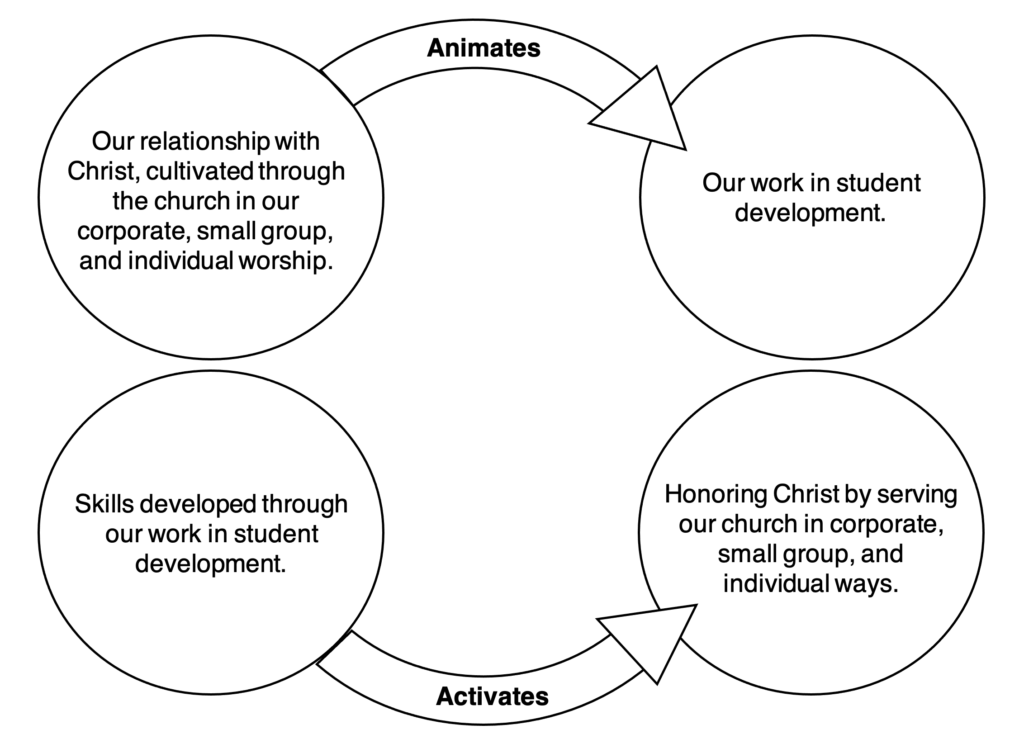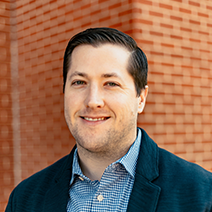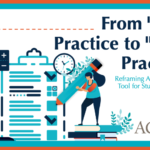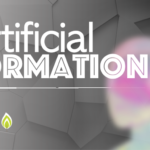When my church’s elder group informed me that I had been nominated to serve as the Deacon of Men’s Ministry for our local church congregation, I felt a mix of emotions. I was excited to serve, but I was also anxious that I lacked the skills needed to succeed. After prayer, encouragement from others, and a member voting process, I started my new role in the diaconate around mid-2020. At first, I was hesitant to plan programs or try anything, given COVID-19 restrictions and my own convictions about avoiding super-spreader events. Eventually, though, as we have learned to do in student development, I found ways to work within (and not around) the confines of social distancing, mask wearing, and general health safety during the pandemic.
Recently, a friend, who is a pastor at another local church, asked if I wanted to partner on a joint men’s retreat later this year between our churches (we actually planted out of their church 2 years ago). I was excited about the possibility to collaborate and, after considering how we could safely facilitate this given the lingering virus, I jumped right in. New to my role and years behind my friend in terms of ministry experience (he is in his mid-60s with formal theological training, I am in my 30s with no formal theological training), I figured I would be taking a backseat in the planning and organization phase. Shortly into our first meeting, I realized that would not be the case.
As I sat in a conference room with a small handful of people (who I consider to be very wise), I was taken aback when they turned to me after tossing out the question, what should our retreat structure look like? At first, I figured they were simply trying to include me in the conversation. However, after realizing they were legitimately looking for ideas, I picked up a dry erase marker (which, in the hands of a student development professional can be quite dangerous!) and just went at it. I started talking about retreat themes, learning and development outcomes, schedules, speakers, registration logistics, and marketing. After stepping back from the white board and our conversation, I had a sudden realization – this feels very similar to what I often do at work! I had gone into “student development mode” and my student affairs skills and training were an asset in that room of church leaders.
As Christians in student development, there are a few resources that can help guide the process of integrating our faith with our work. Glanzer, Cockle, Jeong, and Graber’s (2020) Christ Enlivened Student Affairs is an excellent comprehensive overview of how our faith should animate our work in higher education. In an effort to avoid a “two spheres” type of life, we ought to purposefully think about our work in creative theological ways. That said, there is likewise value in considering how our work is promoting the development of certain skills that can then be applied in ministry settings. When I became Deacon of Men’s Ministry for our church, I was worried that I did not have the extensive professional theological training (e.g., an MDiv degree) I needed to succeed. I have since realized that way of thinking was very limiting.
First, one does not need “extensive professional theological training” to serve the church. If that was the case, our door greeters, coffee makers, or nursery workers would be some of the most over-credentialed positions I have ever seen. Second, by focusing on what I thought I lacked coming into this role, I was unable to see what I was actually equipped to do. Perhaps in my anxiety I simply tuned out the affirmations of others while transitioning to a deacon position. But that moment in the men’s retreat planning meeting showed me how we can apply the skills and talents fostered through our roles in student development in other contexts. Most importantly, it showed me how the abilities I gained at work can support the mission of the church and glorify the Lord.
Visuals often help me flesh out conceptual ideas (you should see my office whiteboard…), so I created the graphic below to articulate my thinking around this.

In short, as Christ should animate our work in student development, our work in student development is refining tangible skills that can help us activate unique ways of bringing honor to Christ through service in the church.
The student affairs profession has identified numerous best practices for our field (e.g., ACPA, NASPA, CAS). You have probably even worked to develop these through graduate school and into your professional career. Why not apply those competencies in a ministry setting such as the church? In student development, God has given us the opportunity to cultivate certain talents that can and should be given back to him.
For example, as a residence hall director, you are skilled in facilitating college student interactions and engagement. Could you find a way to use that skill in your church’s college ministry program? Perhaps you work in student conduct and have developed a knack for helping people process conflict in healthy ways. Could you find a way to weave that skillset into your church’s family conflict mediation resource? Or maybe you work in student activities where you have refined your talents around event planning and program logistics. Could you find a way to use that by helping plan a women’s weekend bible study, or perhaps a retreat?
There are countless ways to use the talents we have picked up through our work in student development by applying them in a ministry setting. So, what are your unique skills? And where can you use them in your church to honor God?







